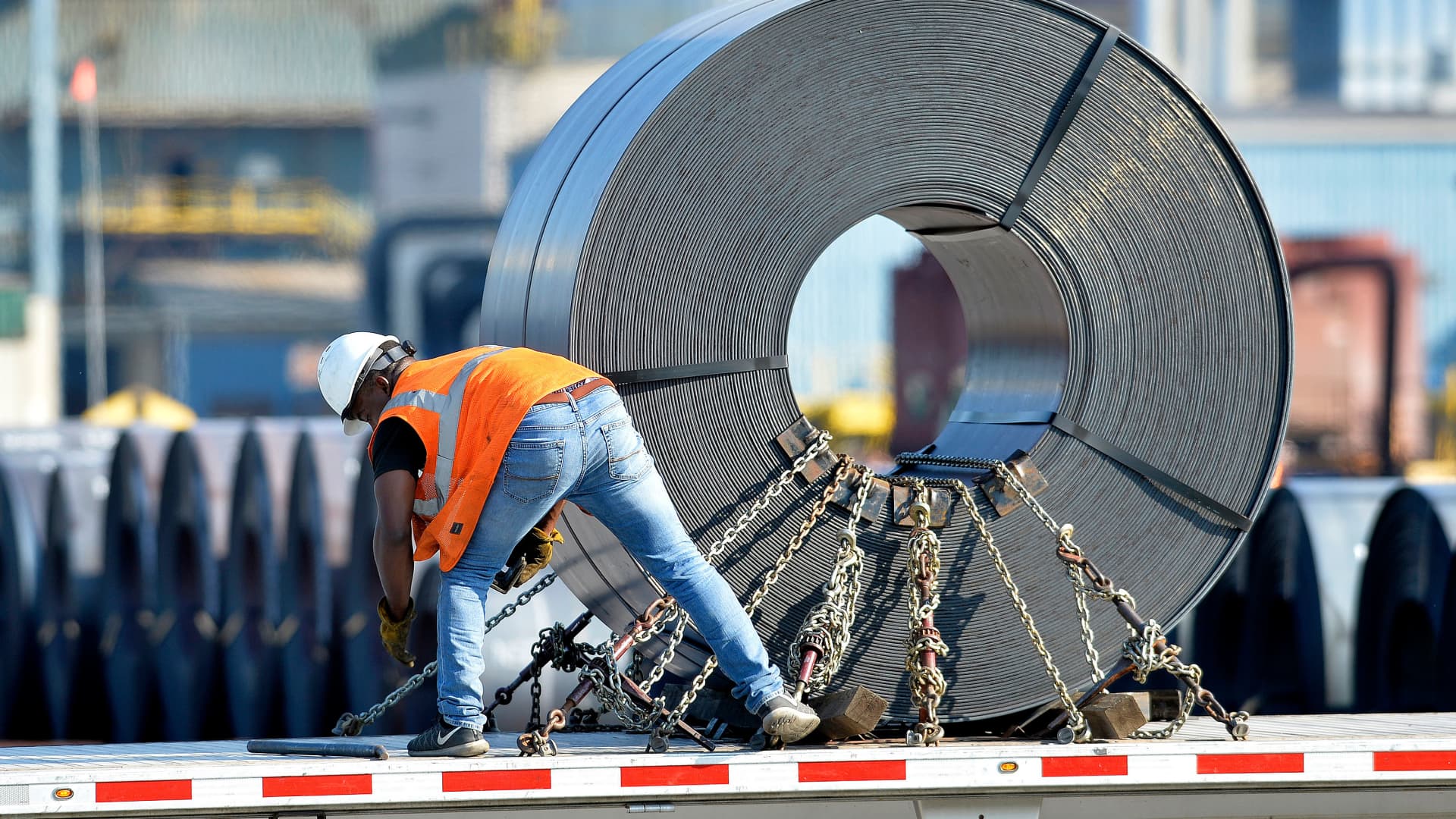Nucor’s CEO on Steel Trade: Insights into the Future of Trump-Era Policies
The steel industry in the United States is often viewed as a barometer for the broader health of American manufacturing. Nucor Corporation, one of the largest steel producers in the country, has taken a prominent stance on this front. Under the guidance of its CEO, Nucor has not only weathered the storms of economic fluctuations but has also thrived in the wake of the Trump administration’s policies. In this article, we delve into the insights shared by Nucor’s CEO regarding the future of steel trade and the implications of past policies, exploring the potential pathways for the steel industry moving forward.
The Impact of Trump-Era Policies on Steel Trade
The Trump administration implemented several key policies that significantly affected the steel trade landscape. The introduction of tariffs on imported steel and aluminum aimed to protect domestic producers from foreign competition. According to Nucor’s CEO, these tariffs have played a crucial role in revitalizing the American steel industry, creating a more favorable environment for manufacturers to operate. The CEO points out that such protective measures have led to increased investment in domestic production facilities, allowing companies like Nucor to expand their operations and workforce.
Moreover, the CEO highlights that the tariffs have fostered a sense of optimism among investors and stakeholders in the steel industry. This optimism is critical as it encourages businesses to plan for the long term, knowing that there is a more stable market environment. With domestic steel production rising, the industry is better positioned to compete globally, thus enhancing the overall economic landscape.
Looking Ahead: The Future of American Manufacturing
Nucor’s CEO emphasizes that while the Trump-era policies provided a strong foundation, the future of American manufacturing hinges on adaptability and innovation. The steel industry must evolve to meet new challenges, including environmental concerns and technological advancements. The CEO believes that embracing sustainable practices will be key to maintaining competitiveness in a global market increasingly focused on green initiatives.
To illustrate, Nucor has been investing in advanced manufacturing technologies and exploring eco-friendly steel production methods. This focus on sustainability not only aligns with global trends but also appeals to consumers increasingly concerned about the environmental impact of their purchases. By positioning itself as a leader in both production and environmental responsibility, Nucor is setting a precedent for the rest of the industry.
Trade Agreements and Their Role
As the steel trade landscape continues to evolve, trade agreements will play a pivotal role in shaping the future. Nucor’s CEO acknowledges the importance of negotiating favorable trade terms that protect American interests while allowing for necessary imports. The balance between protectionism and free trade is delicate, but it is essential for ensuring the long-term health of the industry.
- Protecting American Jobs: Trade agreements must prioritize the protection of American jobs in the steel sector, which is crucial for maintaining a strong manufacturing base.
- Encouraging Fair Competition: The CEO advocates for trade policies that discourage unfair practices, such as dumping, which can undermine domestic producers.
- Fostering Relationships: Building strong trade relationships with allies can also enhance market access for American steel, promoting growth opportunities.
The landscape of global trade is continuously changing, and Nucor’s leadership is committed to navigating these challenges with a forward-thinking mindset. By advocating for fair trade practices, the company aims to ensure a level playing field for American steel manufacturers.
The Role of Innovation in Steel Production
Innovation is not just a buzzword for Nucor; it is at the core of the company’s strategy. The CEO discusses the importance of research and development in driving advancements in steel production. Nucor has a long-standing reputation for being an innovator in the industry, and this commitment to R&D is vital for maintaining a competitive edge.
Some key areas where innovation is making an impact include:
- Automation: The integration of automated processes in steel production has improved efficiency and reduced costs.
- Advanced Materials: Developing new steel alloys that meet the demands of modern construction and manufacturing is crucial for staying relevant.
- Recycling Initiatives: As a major recycler of steel, Nucor is leading the charge in sustainable practices that not only reduce waste but also lower the carbon footprint associated with steel production.
Through these innovations, Nucor is not only optimizing its operations but is also contributing positively to the environment and society at large.
Conclusion: An Optimistic Outlook
In conclusion, Nucor’s CEO presents an optimistic view of the steel trade and the future of American manufacturing, particularly in light of Trump-era policies. The protective measures have laid a strong foundation for growth, but the key to sustained success lies in innovation, adaptability, and fair trade practices. As the steel industry continues to navigate the complexities of global trade, Nucor is poised to lead the way, demonstrating that with the right strategies and forward-thinking leadership, the future of American manufacturing can indeed be bright.
As we move forward, it is essential for stakeholders in the steel industry to remain engaged and proactive in shaping policies that foster a thriving manufacturing environment. Nucor’s commitment to innovation and sustainability sets a powerful example of how the industry can adapt and flourish in an ever-changing landscape.
See more Business Focus Insider Team

